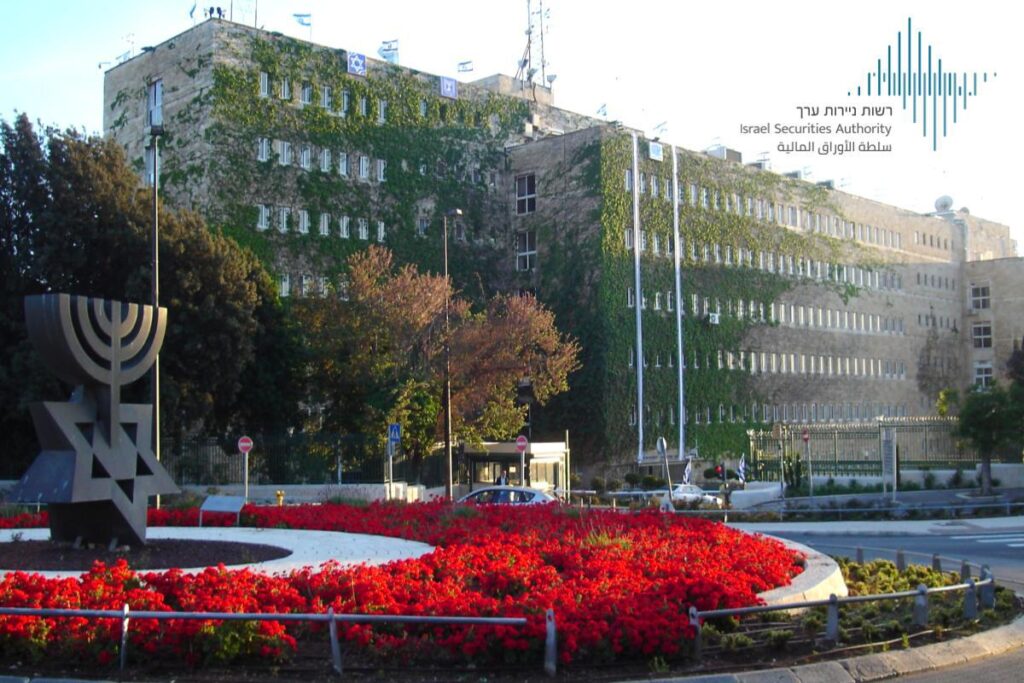The fintech industry in the State of Israel, and this from the consumer point of view. The Securities Authority (hereinafter also: “the Authority”) has set as its banner the promotion of innovation and competitiveness in the financial market for the benefit of all of its participants and for the benefit of the consumer public, the clients of various financial service providers.
Also, the authority recently received the responsibility for implementing regulation and supervision of financial information service providers and payment service providers, this in addition to the other entities supervised by her, and therefore she is at a crossroads that allows her to bring together different and varied perspectives on the state of an industry Fintech in Israel.
According to an estimate, as of July 2022, there are approximately 550 fintech companies in Israel. This is a high amount compared internationally, especially in relation to the size of the population. This branch even experienced a significant jump in the volumes of funds raised in 2021, but despite The high one, the vast majority of the companies do not operate in Israel and do not offer services to Israeli customers.
This situation is alarming
These are worrying questions, especially in view of the analysis of the fintech industry’s contribution to the local economy, as we will present below.
Gross (the fintech industry’s contribution to the Israeli economy was analyzed in this document, both on the basis of a quantitative calculation of a gross added value index and on the basis of a qualitative assessment of the fintech companies’ contribution to consumers, i.e. to institutions (“GVA”): hereafter also value added the financial, to the public of customers and businesses. In terms of the gross added value index, the data detailed in the document indicate that the contribution rate of the fintech industry in Israel to the total gross domestic product is higher than its rate in the countries selected for comparison internationally (UK, Australia and Sweden).
..
..
This, in view of the strong characteristics of the Israeli high-tech sector and the fact that in Israel quality fintech companies are growing that employ tens of thousands of Israelis, despite the fact that they sell their services outside to Israel It can be assumed that promoting the activities of these companies in Israel will increase their contribution to the GDP even more.
From the analysis of the qualitative assessment of the fintech industry’s contribution to consumers in Israel, it seems that the very fact that fintech companies choose not offering their services in Israel prevents the possibility of realizing the potential inherent in their activity for the Israeli consumer. Improving the user experience, saving costs of financial products and services, streamlining processes and personalizing products and financial services are examples of the consumer contribution of this field to the consumer.
In Israel, the ultra-orthodox and Arab sectors are almost always excluded from the traditional economy. At the same time, these are sectors which constitute an essential part of Israel’s exponentially growing population, therefore it is clear that it is necessary to treat with full attention the financial inclusion of these sectors in order to increase their contribution to the Israeli economy. due to the fact that they are based on technology, fintech companies have the capabilities to address diverse target audiences with specific characteristics and increase accessibility, the supply and the personal well-being of their users. Increasing financial inclusion as a national goal has the power to contribute to national resilience and well-being, consumerism and the democratization of money as a social value.
This document focuses on the barriers that prevent fintech companies from operating in Israel and the recommended steps to remove these barriers. In recent years, following the implementation of the recommendations of the committee for increasing competitiveness in common banking and financial services (below: “Strom Committee”, many steps were taken in Israel to increase competition in the financial and banking market, such as separating companies the credit cards from the banks, the establishment of a credit data database, the granting of licenses to companies, including fintech companies, that operate in the field of non-bank credit, establishing a system for moving bank accounts, easing the conditions for obtaining a bank license, implementing a reform.
Open banking and more. At the same time, the competitiveness in the banking and financial market is low and the market continues to be concentrated in more companies fintechs operating in a variety of fields, such as payments, cyber, risk management and fraud prevention, underwriting and insurance, investments and trading furthermore, they choose not to operate in Israel. In order to encourage the entry into operation of significant fintech companies in the financial market in Israel and to develop an infrastructure for its existence of a significant and stable fintech industry that also operates in Israel and not only overseas, we recommend steps on several levels to Removing the barriers facing these companies: at the level of regulation –
Completion of the licensing arrangement for non-bank payment service providers.
Promotion of a regulation adapted to the activity of fintech companies regarding the prevention of money laundering and terrorist financing.
Completing the broker-dealer legislation to create regulatory certainty for the activities of global fintech companies operating in the field investments in securities. in terms of activity with the banking system – Reducing fintech companies’ dependence on the banking system. Simplicity and availability of the possibility to participate directly in the payment systems. at the international level – Promoting the granting of exemptions and reliefs to fintech companies operating abroad with a foreign license in terms of market development.
Regulatory in favor of encouraging the entry of fintech companies into activity in Israel. (Sand Box) Setting up a sandbox. Continuation of the activity of pilot programs funded and accompanied by the Securities Authority and the Innovation Authority.
Allowing fintech companies to engage in providing credit during payment operations, as an inherent part of their activity. in terms of measuring how the reforms are implemented – Establishment of a body, subordinate to the Ministry of Finance, with the participation of representatives of the various financial regulators, representatives of the Competition Authority, and Representatives of parties from the market in order to examine the implementation of the reforms undertaken to encourage the activity of the fintech industry in Israel and to examine of meeting quantitative goals to be determined. The implementation of these measures will assist in the establishment of a strong, active and sustainable fintech industry in Israel, will encourage the activity of companies Significant fintechs in Israel will promote the adoption of the innovation involved in the services they offer for the benefit of development and promotion of the financial market for the benefit of the Israeli consumer. Increasing competition in this market while opening it to new players will benefit the public The customers and the local businesses and to the Chief Economist Division at the Ministry of Finance Start-Up Nation Central (SNC) to the KPMG organization, the team thanks the firm for the great assistance in the process of preparing the document, the presentation of the data, their processing and their helpful comments during the preparation of the document.
..
January 14, 2023 Published by The Israel Securities Authority. (Full Report in PDF Hebrew)







